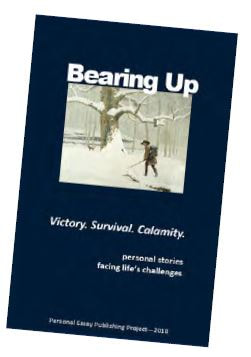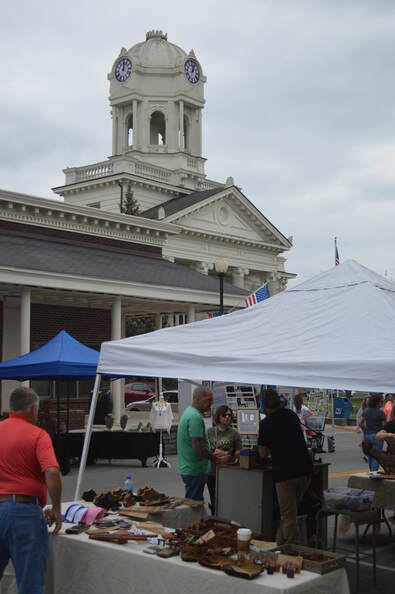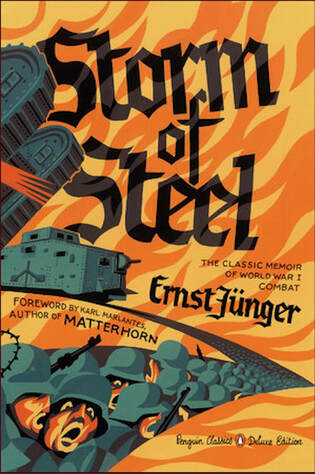 Click the image to read more about Randell Jones' Personal Essay Publishing Project and this volume in particular. Click the image to read more about Randell Jones' Personal Essay Publishing Project and this volume in particular. Two years ago, I took an eight-week essay-writing class with the irrepressible Teri Carter. At some point, she alerted us to a call for essays from a North Carolina writer and editor who was putting together a compendium of brief pieces by emerging writers. The theme of the collection was “facing adversity and making do”—more specifically, overcoming challenges as Daniel Boone had done 250 years ago when he was trapped by an early snowstorm in Kentucky during a hunting trip. At the time, I was accustomed to writing short essays, both for Teri's class and for this blog. I didn’t have an inspiring story to share, one where I had faced danger or personal calamity or had demonstrated unusual courage or forbearance. But I was working through how to construct a novel-length narrative based on my maternal grandfather’s life, and one evening I dashed off a tongue-in-cheek reflection on what I had in common with him. On a whim, I submitted the essay to the project editor and coordinator, Randell Jones. And then I promptly forgot about it. I devoted the next months to figuring out how to write fiction. Sometime that spring, Jones alerted me that he planned to include my piece in the book Bearing Up. When I finally received a copy, I read through the other submissions and felt a little sheepish. The best pieces were short stories—something my contribution definitely was not. I ended up being mildly embarrassed by the whole thing. And I once again forgot about it. Until a few days ago, when I received notice that Jones has now included my essay in the series of podcasts he is releasing. I admit I was surprised. When I rustled up the nerve to listen to his rendition, I liked it. He captured precisely the tone I had hoped to convey. So I offer you Mr. Randell Jones’ 7-minute reading of “Adieu Encore,” my public admission that my “rapscallion grandfather,” as Jones calls him, and I have much in common. Submit an essay for the 2020 Personal Story Publishing Project! Write a personal story (780 words or so, 800 max) about "that Southern thing—living, loving, laughing, loathing, leaving the South. No fiction. You may share a story of someone close to you or an ancestor whose story you know well." Deadling for submission: December 15, 2019 Click for more information.
3 Comments
 The Anderson County courthouse stands sentinel over The Stave Fest in September 2019. Photo by Rick Showalter. The Anderson County courthouse stands sentinel over The Stave Fest in September 2019. Photo by Rick Showalter. Although Lawrenceburg was my parents’ hometown, I don’t have many memories of the place before my family moved there when I was seven. I know we came for visits, despite the arduous two-day drive. Typically, however, we would stay at the rambling farmhouse of my Goodlett cousins in southern Franklin County. As we neared our destination, I would wake up in the back seat of the old Plymouth Valiant, peer out the window at the white board fence loping along the road, and know that we were almost there. I do remember one fateful trip, however, when we were planning to stay with my McWilliams cousins in Lawrenceburg. That trip was special: we were taking the train. I remember being picked up from school—another oddity, since my sister and I always walked to and from school—before we headed to the train station. Sometime en route, as the train rumbled west, I developed the mumps. I don’t remember too much more about the visit, but I’m sure it was not the family gathering anyone had anticipated. So Lawrenceburg was still largely a mystery to me when we moved there. One of my early memories was shopping with Joy Mountjoy and Jean Goodlett at The Louisville Store. I remember wandering the aisles of Ben Franklin, awestruck at all the trinkets. I recall hearing about the filming of “The Flim-Flam Man” in town the summer before, disappointed that I had missed all the excitement. I tagged along with my mother everywhere she went. The Lawrenceburg Bank. Ballard’s Drug Store. Model Market. Her aunt and uncle’s apartment on Jackson Street. That first summer, that’s how I got to know the town. Recently, members of the Anderson County Historical Society were treated to a montage of film captured by Roy York in the early 1960s: parades through downtown Lawrenceburg, documentation of all the churches and public buildings, the dedication of Beaver Lake. Those of us of a certain age enjoyed catching glimpses of the people and places we remember from that era. It was a long time ago. Lawrenceburg is a different place now. The 127-Bypass has become a commercial mecca. New neighborhoods have sprouted in every direction. The population has more than quadrupled. But you still have to stop for the train on North Main Street. The old cemetery is still a beautiful place for a reflective walk. Downtown is once again bustling with places to eat and shop. The churches along Main Street haven’t moved. The courthouse featured in the old movie still stands sentinel. I’m heading back to Lawrenceburg tomorrow for the Anderson Public Library Book Fest. I hope to chat with some current residents. Perhaps I’ll see some old friends. As I did the research for The Last Resort, I probably learned more about the area’s people and history than I had in the 10 years I lived there. There’s still much to discover, of course. But I know Pud Goodlett and Bobby Cole are happy that the little logbook of their adventures along Salt River has led me to a better understanding of their hometown.  Ernst Jünger’s “Storm of Steel” (Penguin edition, 2004). Ernst Jünger’s “Storm of Steel” (Penguin edition, 2004). David Hoefer, of Louisville, is the co-editor of The Last Resort. If you would like to submit a blog post for Clearing the Fog, contact us here. The Last Resort is about young men in the final stages of youth, an all-too-brief period of camaraderie in the leafy, rural backdrop of Anderson County, Kentucky. But that’s not all John Goodlett’s book is about. Pud’s letters home while training to be an infantryman and later witnessing the closing days of World War II present another important part of his story. In the spring of 1945, he faced the desperate violence of Germany’s failing opposition, as well as the skeletonized horror of a newly liberated concentration camp. Evidence suggests that Pud was a good soldier if not exactly a natural one. In a letter from France dated 6 Feb 1945, he explains to his mother and sister that his life outdoors has prepared him well for living in muddy trenches and handling a rifle. Without doubt he was a successful soldier: he made it home alive, returning to civilian life. I’ve been reading another, more extensive war memoir of an altogether different character. The book’s English title is Storm of Steel, and its author is Ernst Jünger, a German veteran of trench combat in World War I. By all accounts, Jünger was a natural soldier—born to it and unashamed of the role he played in battle. At the same time, he was a gifted writer, who left us what many consider one of the best accounts of Western Front warfare, that four-year spectacle of death and obliteration. Storm of Steel is quite unlike the pacifist tracts and novels that were popular in the years following the war’s end. Rather, it is a sharply observant record of the day-to-day tedium, punctuated by chaotic, deafening menace, that defined the conflict, captured by Jünger without sentimentality or celebration. I bring this up because of a passage early in the book that caught my attention. New to his deployment, Jünger is experiencing shelling from a French position for the first time. His unit is posted by a woods that has yet to be destroyed by the fighting. Of this he writes: “Towards noon, the artillery fire increased to a kind of savage pounding dance. The flames lit around us incessantly. Black, white, and yellow clouds mingled…And all the time the curious, canary-like twittering of dozens of fuses. With their cut-out shapes, in which the trapped air produced a flute-like trill, they drifted over the long surf of explosions like ticking copper toy clocks or mechanical insects. The odd thing was that the little birds in the forest seemed quite untroubled by the myriad noises; they sat peaceably over the smoke in their battered boughs. In the short intervals of firing, we could hear them singing happily or ardently to one another, if anything even inspired or encouraged by the dreadful noise on all sides” (2004:27-8, trans. by Michael Hofmann). Nature abides; the birds carry on despite the groundswell of violence, without the ability to penetrate any realm beyond immediate circumstance. Observations like these reimagine war as a kind of stupid, background static. This passage made me think about Pud, who faced down his own difficulties in war. It recasts the contrast between a delight-filled ramble in the woods and a dangerous, cold night in a foxhole as a single, somewhat enigmatic incident. This compression of tranquility and anxiety, of blessedness and its withdrawal, summarizes the power that we also detect in John Goodlett’s journals and letters. A little further into Storm of Steel there’s a second passage that illustrates nature’s eternal return: “Rank weeds climb up and through barbed wire, symptomatic of a new and different type of flora taking on the fallow fields [between the front lines]. Wild flowers, of a sort that generally make only an occasional appearance in grain fields, dominate the scene; here and there even bushes and shrubs have taken hold. The paths too are overgrown, but easily identified by the presence on them of round-leaved plantains. Bird life thrives in such wilderness, partridges for instance, whose curious cries we often hear at night, or larks, whose choir starts up at first light over trenches” (ibid.:41). Ecological succession unfolds even in the most forbidding circumstances. Nature is that stubbornest of all habits. Storm of Steel is worth your time (though not without some gruesome moments). Jünger knew the fear of war but never the fear of writing about it. By giving us a polished but truthful account, he goes beyond the moralism that actually detracts from depictions of the Devil’s great gift to humanity. |
Details
Archives
June 2023
Categories
All
|


 RSS Feed
RSS Feed